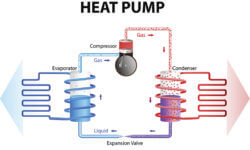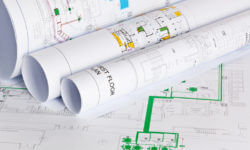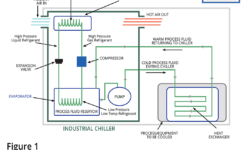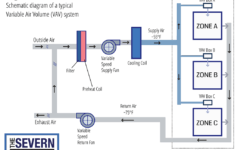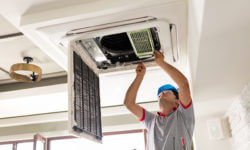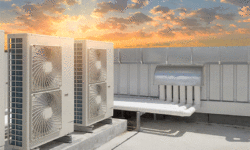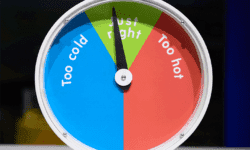One common challenge that commercial properties face is proper air control, which can be solved by packaged HVAC systems. But, what’s the best way for facility managers to heat and cool a building? First, they need to consider all the HVAC systems that are available and which fits the property’s needs. For example, packaged HVAC systems are best for commercial spaces. They offer energy savings, easy maintenance, and a quieter building. Read more to learn more.
Read more →Geothermal systems work similarly to other HVAC structures. However, there is one major difference. Geothermal systems use the ground rather than air to absorb or release heat. So, if you are considering installing a geothermal heat pump (GHP) system for your facility or business, pay close attention. Here are five things you need to know about geothermal systems.
Read more →As the world develops and grows, so does the need for proper climate control for commercial HVAC systems. New, original architectures pop up seemingly overnight, and with them comes another huge challenge. So, how are people supposed to manage climate control in uniquely-shaped and wholly different buildings, the likes of which they’ve never seen before?
Read more →Depending on the size of the building, it’s not just as simple as having your basic components. Incorporating HVAC equipment in conjunction with a commercial building’s design can have a big impact on energy savings. For this article, we not only want to discuss designing HVAC systems to meet industry standards but also to make them resource and energy-efficient.
Read more →Chillers do exactly what the name says – cool things down. In fact, chillers are necessary across a wide range of applications. But, how does a chiller work? In short, they prevent overheating and keep products cool to avoid harm to your machinery and bottom line. Here, we’ve broken down the elements of chillers and how they work.
Read more →Trying to decide which air zone HVAC system is right for you? There are two types to consider: VAV (variable air volume) and VVT (variable volume and temperature) HVAC systems. Overall, both systems help you cut back on utility costs compared to CAV (constant air volume) systems of years past. However, there are a few key differences that could sway your decision. To help you get a better idea, we’ve compared VAV vs VVT systems.
Read more →Cooling capacity is measured in BTUs (British Thermal Units) just like it is for grills and ovens. The number of BTUs lets you know how much heat the unit can manage. It takes a lot of planning and calculation to figure out the correct size for buildings, especially large multi-stories. So, let’s dive into some things you need to know about properly sizing a commercial air conditioner.
Read more →When it’s time to replace or install an HVAC system in your building, there are several options to consider. One of those options is called an RTU HVAC system. It still provides heating and cooling, along with the same air quality benefits as any HVAC system. What makes an RTU system different, however, is its location and setup. Here’s what you need to know about RTU HVAC systems and how to tell if it’s the right choice for you.
Read more →If you’re a property manager or facility operator in the retail sector, you know this predicament all too well. But, there’s actually an ideal temperature for retail stores that are neither too hot nor too cold, but just right. While there’s no magical thermostat setting that lets you set it and forget it, there are a few ways you can achieve an ideal temperature in your retail store. Here’s how.
Read more →Many homeowners are switching to ductless heating and cooling systems in favor of the traditional HVAC. But, they’re not the only ones. The Environmental Protection Agency (EPA) reports that more and more commercial buildings are going ductless, too. In fact, ductless heating and cooling systems have been used in commercial buildings for several decades now.
Read more →
